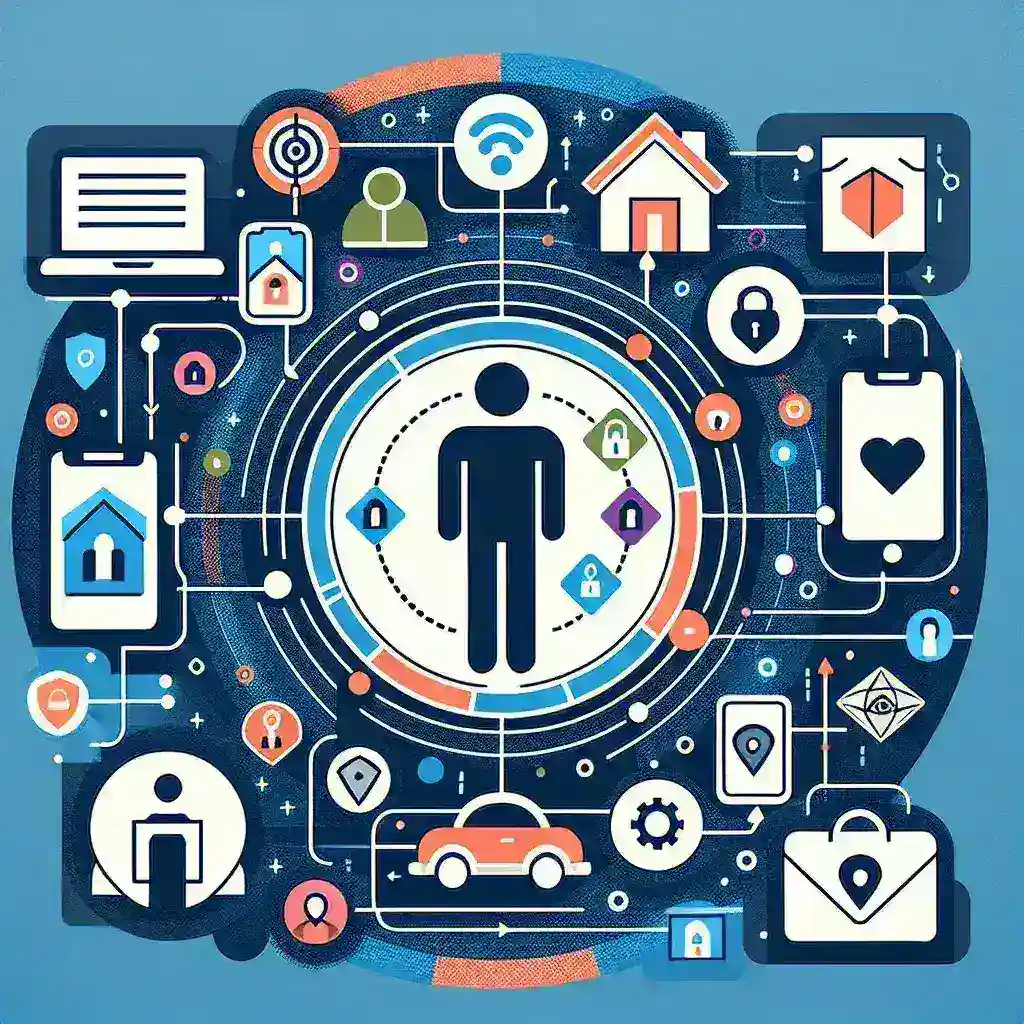Understanding Decentralized Identity Frameworks
In today’s digital landscape, personal data privacy has become a significant concern for individuals and organizations alike. With increasing instances of data breaches and identity theft, the need for secure and user-centric identity management solutions is more crucial than ever. Decentralized identity frameworks are emerging as a groundbreaking solution, providing users with enhanced control over their personal data sharing.
What is Decentralized Identity?
Decentralized identity refers to a digital identity that is not controlled by a single entity but rather is managed by the individual user. Unlike traditional identity systems, where service providers hold user data, decentralized identity allows users to own their credentials, enabling them to share specific pieces of information without exposing their entire digital identity.
Historical Context
The concept of decentralized identity has its roots in the blockchain technology revolution. Initially designed for cryptocurrency, blockchain has evolved to encompass a wide array of applications, including identity management. In 2014, the term self-sovereign identity (SSI) was introduced, highlighting the shift towards individuals controlling their data.
How Decentralized Identity Frameworks Work
Decentralized identity frameworks typically involve three core components:
- Identifiers: Unique identifiers that are cryptographically secure and user-controlled.
- Verifiable Credentials: Digital certificates that can be issued by trusted entities and verified by others without revealing underlying personal data.
- Decentralized Identifiers (DIDs): A new type of identifier that enables verifiable claims about a subject.
Real-World Examples
Several organizations and initiatives are leading the charge in developing decentralized identity solutions:
- Self-Sovereign Identity (SSI) Networks: Projects like Sovrin and uPort are creating networks where users can manage their identities and credentials independently.
- Verifiable Credentials: Platforms like Microsoft’s Azure Active Directory Verifiable Credentials provide a way for organizations to issue and verify credentials securely.
Benefits of Decentralized Identity Frameworks
Decentralized identity frameworks offer numerous advantages:
- User Control: Individuals can determine what data to share and with whom, minimizing unnecessary exposure.
- Enhanced Security: Personal data is stored securely on the user’s device, reducing the risk of mass data breaches.
- Privacy by Design: By default, users’ data privacy is prioritized, aligning with regulations such as GDPR.
- Interoperability: These frameworks can work across multiple platforms, facilitating seamless transitions between services.
Challenges and Considerations
While decentralized identity frameworks present compelling advantages, they also face challenges:
- Adoption Barriers: Transitioning from traditional systems to decentralized models requires significant changes in infrastructure and user behavior.
- Regulatory Compliance: Navigating the complex landscape of data protection laws across jurisdictions can be daunting for organizations.
- Technical Complexity: Users may find the technology behind decentralized identities intimidating, leading to resistance in adoption.
Future Predictions
As the digital landscape evolves, so too will decentralized identity frameworks. The future may see:
- Wider Adoption: More organizations and service providers will recognize the benefits of decentralized identities, leading to broader implementation.
- Increased Interoperability: Cross-platform compatibility will improve, allowing users to seamlessly use their decentralized identities across various services.
- Integration with Emerging Technologies: The intersection of AI, IoT, and decentralized identities could create innovative solutions for security and data management.
Getting Started with Decentralized Identity
If you’re interested in exploring decentralized identity frameworks, consider the following steps:
- Research: Delve into the various platforms and solutions available, understanding their unique features and benefits.
- Engage with Communities: Join forums and groups focused on decentralized identity to connect with others and share knowledge.
- Experiment: Use tools and applications that support decentralized identities to familiarize yourself with the technology.
- Advocate: Promote the importance of data privacy and user control within your network to help foster a supportive environment for decentralized identity.
Conclusion
Decentralized identity frameworks represent a transformative approach to personal data sharing, giving users unprecedented control over their information. As we move towards a more digital future, embracing these frameworks can empower individuals, enhance security, and pave the way for a more privacy-focused online experience. The journey towards widespread adoption may be challenging, but the potential rewards are significant, making it an essential area of focus for both individuals and organizations alike.

